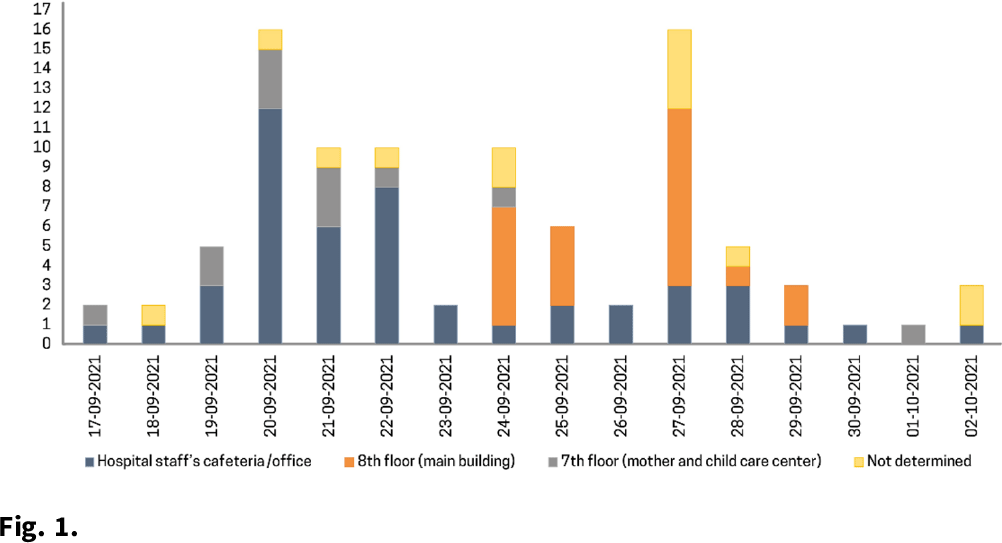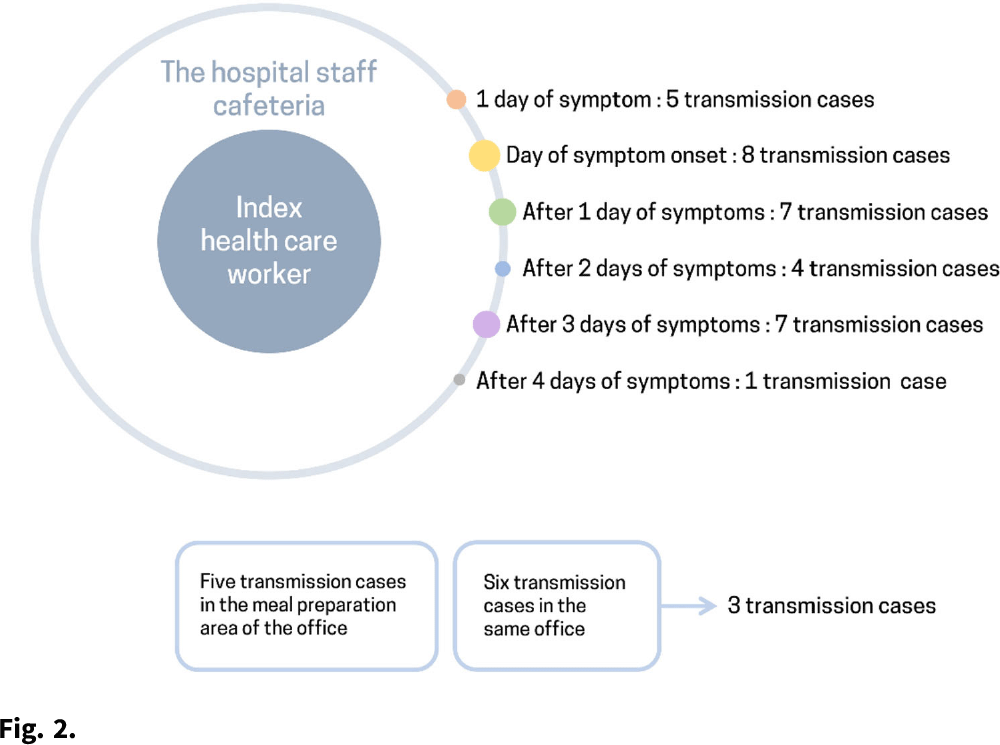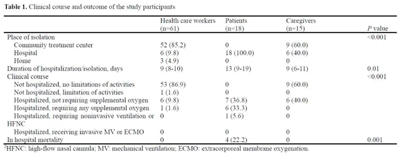No CrossRef data available.
Article contents
A SARS-CoV-2 outbreak due to vaccine breakthrough in an acute-care hospital
Published online by Cambridge University Press: 16 May 2022
Abstract
Background: The δ (delta) variant has spread rapidly worldwide and has become the predominant strain of SARS-CoV-2. We analyzed an outbreak caused by a vaccine breakthrough infection in a hospital with an active infection control program where 91.9% of healthcare workers were vaccinated. Methods: We investigated a SARS-CoV-2 outbreak between September 9 and October 2, 2021, in a referral teaching hospital in Korea. We retrospectively collected data on demographics, vaccination history, transmission, and clinical features of confirmed COVID-19 in patients, healthcare workers, and caregivers. Results: During the outbreak, 94 individuals tested positive for SARS-CoV-2 using reverse transcription-polymerase chain reaction (rtPCR) testing. Testing identified infections in 61 health care workers, 18 patients, and 15 caregivers, and 70 (74.5%) of 94 cases were vaccine breakthrough infections. We detected 3 superspreading events: in the hospital staff cafeteria and offices (n = 47 cases, 50%), the 8th floor of the main building (n = 22 cases, 23.4%), and the 7th floor in the maternal and child healthcare center (n = 12 cases, 12.8%). These superspreading events accounted for 81 (86.2%) of 94 transmissions (Fig. 1, 2). The median interval between completion of vaccination and COVID-19 infection was 117 days (range, 18–187). There was no significant difference in the mean Ct value of the RdRp/ORF1ab gene between fully vaccinated individuals (mean 20.87, SD±6.28) and unvaccinated individuals (mean 19.94, SD±5.37, P = .52) at the time of diagnosis. Among healthcare workers and caregivers, only 1 required oxygen supplementation. In contrast, among 18 patients, there were 4 fatal cases (22.2%), 3 of whom were unvaccinated (Table 1). Conclusions: Superspreading infection among fully vaccinated individuals occurred in an acute-care hospital while the δ (delta) variant was dominant. Given the potential for severe complications, as this outbreak demonstrated, preventive measures including adequate ventilation should be emphasized to minimize transmission in hospitals.
Funding: None
Disclosures: None



- Type
- Outbreaks
- Information
- Antimicrobial Stewardship & Healthcare Epidemiology , Volume 2 , Issue S1: SHEA Spring 2022 Abstracts , July 2022 , pp. s83
- Creative Commons
- This is an Open Access article, distributed under the terms of the Creative Commons Attribution licence (http://creativecommons.org/licenses/by/4.0/), which permits unrestricted re-use, distribution, and reproduction in any medium, provided the original work is properly cited.
- Copyright
- © The Author(s), 2022. Published by Cambridge University Press on behalf of The Society for Healthcare Epidemiology of America


